The Importance of Proactive Pest Management
Changing weather conditions can push pests like mice, ants, and insects into residential homes in search of food and water. This means that you have to be cautious to avoid sharing your home with these unwanted critters. One of the most effective methods of pest control is adopting a proactive approach to pest management and prevention. To understand how we can prevent pests, we first must know why they come into our homes in the first place.
Why You Have Pests
Generally, pests are attracted to homes because they offer advantages unavailable to them in the wild. Understanding the details of why, and how, is the first step in devising a proactive pest control plan for your home. This will help identify changes that you can implement in and around your property to make your home unattractive to pests.
Reasons Pests Enter Your Home
- Safety – In the wild, every pest species has a predator species that keeps the population under control. Mice and rats are eaten by larger animals and birds; ants, pill bugs, and other bugs are eaten by spiders, hedgehogs, and shrews. Pests living in a human environment are, by and large, safe from predation.
- Shelter – pests look for a warm place during the winter and a cool place during the summer. Our homes are ideal shelters from the elements. Holes in your wall or roof, broken screens in dryer vents, or open windows and doors allow rats and mice to enter your home.
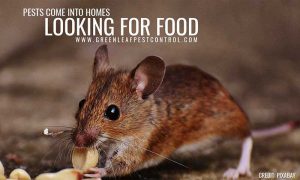
- Food – anything edible left in the open can attract pests. This includes spills, crumbs, unattended food, and food in unsealed packages. Fruit flies prefer access to moisture and rotting food, so partially clogged kitchen drains are very attractive to them. Unsealed garbage bins can also attract both large and small pests.
- Water – leaks in your pipes and faucets can attract insects and mice. Mosquitoes and flies lay their eggs in stagnant standing water, like rain pooling in pots, buckets, or a kiddie pool.
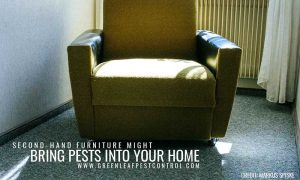
What is Proactive Pest Management?
Proactive pest management means taking advance precautions to prevent pests from entering your home by making it less attractive to them. Preventive measures significantly reduce the likelihood of pests showing up in your home and causing concerns with your food, water, and furniture.
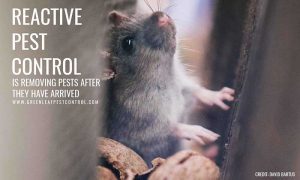
Reactive pest management is eliminating an existing infestation in your home. The main difference between proactive and reactive pest management is that the former is about prevention while the latter focuses on control or extermination. Proactive pest management is preferred because it is often easier to keep unwanted creatures out in the first place than it is to eradicate them once they have moved in.
For most of us, a combination of proactive and reactive measures are needed to keep our homes pest-free year-round.
Benefits of Proactive Pest Management
- Catch pests that you might have missed – When pest control professionals inspect your home, they may notice signs of pests that you missed. They have specialized training and equipment to identify signs of an infestation. If there is an infestation, a professional can eliminate the pests and prevent a reinfestation in your home.
- Avoid potential health risks – Rodents, mosquitoes, flies, and even some birds carry diseases that can transfer to humans. Pests like rats, mice, and cockroaches can get into your food if it is stored in unsealed containers. And, of course, wild animals can bring with them allergens that could trigger an allergic response or asthma.
- Avoid property damage – Pests can be destructive. Mice and rats may chew through wiring in your walls, causing a fire hazard. Carpenter ants and carpenter bees burrow in exposed softwoods, causing cosmetic and occasionally more significant damage. Preventing infestations of these pests means avoiding repairs for harm they’ve already inflicted.

- Peace of mind – Practicing proactive pest management allows you to sleep easy at night knowing there are no creepy crawlies scurrying about in your kitchen, attic, or basement in the dead of night.
Proactive Pest Management Tips
If pests are looking for shelter, food, safety, and water when they enter your house, then preventing them from accessing these things is the simple way to make your home less attractive to them. Follow these simple precautionary measures to avoid attracting pests onto your property and into your home:
- Store food securely – Keep leftovers in airtight containers and put them inside refrigerators or freezers. Avoid keeping fruit or vegetables in the open. If you have pets, make sure that food and treats for your pets are sealed securely. Dispose of their leftovers after they eat.
- Get rid of standing water – After it rains, empty any container that has accumulated standing water. If you have a fish tank, clean this regularly to avoid having mosquitoes use the water as a breeding ground.
- Buy trash bins with secure lids – Garbage bins attract all kinds of pests and wildlife. Discourage rodents, raccoons, and other unwanted animals by making sure that your outdoor trash bins, especially ones containing food and other organic wastes, are closed tightly.
- Repair holes, cracks, and other entry points – Pest-proof your house by sealing cracks and openings that pests can use as an entrance. Repair holes in window screens and dryer vents, and make sure that your windows and doors shut completely.
- Repair damaged pipes and leaks – Leaky fixtures and damaged pipes can attract pests as well as cause water damage. If you notice that a faucet, sink, toilet, or drain is faulty, call a plumber to have it fixed.
- Keep your home clean and tidy – Clear closets, attics, and your basement of unnecessary items that accumulate over time. If there are some keepsakes that you treasure (especially things made of fabric or paper), store them in tightly sealed containers to prevent rodents nesting in them.

- Regularly groom your pets – Grooming and bathing your pets at least once a week will help prevent them from bringing ticks and fleas into your home. Inspect them for parasites whenever you return from walks, especially if they were somewhere with tall grass.
Note, however, that preventative acts alone may not be enough to discourage pests from entering your property. To be effective, these must be complemented with pest control services offered by professionals.
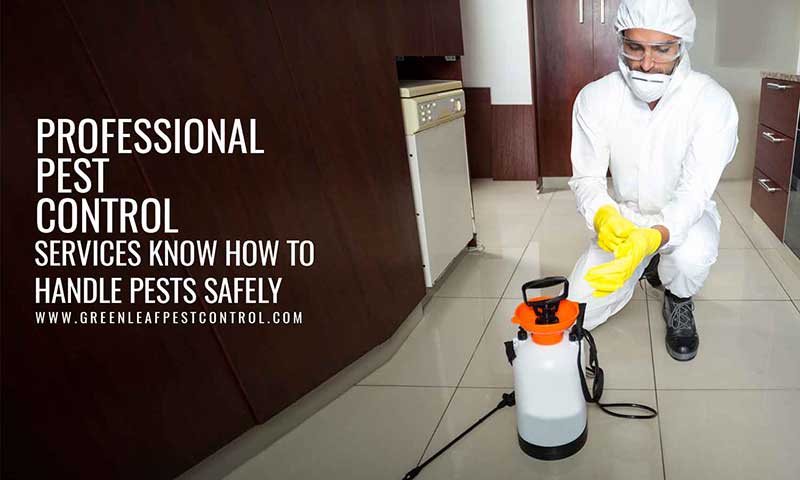
Both proactive and reactive pest management are services that are best left to professionals. They are better equipped with the tools and skills to do the job safely and efficiently.
GreenLeaf Pest Control’s goal is to provide you with the most proactive, preventative, and effective pest control services using our Environmental Pest Management and Integrated Pest Management systems. For pest control in all of Southern Ontario, call (416) 998-9473.


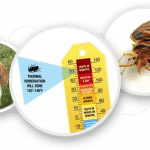

You must be logged in to post a comment.